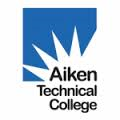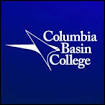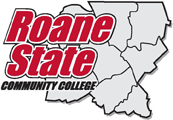What do they do?
Collect data on work environments for analysis by occupational health and safety specialists. Implement and conduct evaluation of programs designed to limit chemical, physical, biological, and ergonomic risks to workers.
Also known as:
Advisory Industrial Hygienist, Certified Industrial Hygienist (CIH), Construction Safety Consultant, EHS Advisor (Environmental, Health, and Safety Advisor), Health and Safety Technician (Health and Safety Tech), Industrial Hygiene Consultant, Industrial Hygienist, Safety Specialist, Safety Technician (Safety Tech), Safety Trainer
-
14%
Change
Ranks #29 in job growth rate140Job Openings
Ranks #7 in net job growth
Looking for colleges that offer a specific major? Use the College Match Tool to find your best-matched schools and discover your estimated Net Price!
- Bachelor's degree (34%)
- Some college, no degree (19%)
- High school diploma equivalent (16%)
- Master's degree (15%)
- Associate's degree (10%)
- Less than high school diploma (3%)
- Doctorate or Professional Degree (2%)
People in this career often have these skills:
- Active Listening - Giving full attention to what other people are saying, taking time to understand the points being made, asking questions as appropriate, and not interrupting at inappropriate times.
- Reading Comprehension - Understanding written sentences and paragraphs in work-related documents.
- Speaking - Talking to others to convey information effectively.
- Critical Thinking - Using logic and reasoning to identify the strengths and weaknesses of alternative solutions, conclusions, or approaches to problems.
- Writing - Communicating effectively in writing as appropriate for the needs of the audience.
People in this career often know a lot about:
- Education and Training - Knowledge of principles and methods for curriculum and training design, teaching and instruction for individuals and groups, and the measurement of training effects.
- English Language - Knowledge of the structure and content of the English language including the meaning and spelling of words, and rules of composition and grammar.
- Public Safety and Security - Knowledge of relevant equipment, policies, procedures, and strategies to promote effective local, state, or national security operations for the protection of people, data, property, and institutions.
- Law and Government - Knowledge of laws, legal codes, court procedures, precedents, government regulations, executive orders, agency rules, and the democratic political process.
- Engineering and Technology - Knowledge of the practical application of engineering science and technology. This includes applying principles, techniques, procedures, and equipment to the design and production of various goods and services.
- Mathematics - Knowledge of arithmetic, algebra, geometry, calculus, statistics, and their applications.
- Administration and Management - Knowledge of business and management principles involved in strategic planning, resource allocation, human resources modeling, leadership technique, production methods, and coordination of people and resources.
- Customer and Personal Service - Knowledge of principles and processes for providing customer and personal services. This includes customer needs assessment, meeting quality standards for services, and evaluation of customer satisfaction.
People in this career often have talent in:
- Oral Comprehension - The ability to listen to and understand information and ideas presented through spoken words and sentences.
- Written Comprehension - The ability to read and understand information and ideas presented in writing.
- Oral Expression - The ability to communicate information and ideas in speaking so others will understand.
- Problem Sensitivity - The ability to tell when something is wrong or is likely to go wrong. It does not involve solving the problem, only recognizing that there is a problem.
- Deductive Reasoning - The ability to apply general rules to specific problems to produce answers that make sense.
- Inductive Reasoning - The ability to combine pieces of information to form general rules or conclusions (includes finding a relationship among seemingly unrelated events).
- Written Expression - The ability to communicate information and ideas in writing so others will understand.
- Near Vision - The ability to see details at close range (within a few feet of the observer).
- Speech Clarity - The ability to speak clearly so others can understand you.
- Information Ordering - The ability to arrange things or actions in a certain order or pattern according to a specific rule or set of rules (e.g., patterns of numbers, letters, words, pictures, mathematical operations).
- Speech Recognition - The ability to identify and understand the speech of another person.
People in this career often do these activities:
- Inspect work environments to ensure safety.
- Protect patients or staff members using safety equipment.
- Conduct health or safety training programs.
- Test facilities for environmental hazards.
- Prepare official health documents or records.
- Advise communities or institutions regarding health or safety issues.
- Maintain inventory of medical supplies or equipment.
- Verify that medical activities or operations meet standards.
- Prepare medical supplies or equipment for use.
- Maintain medical laboratory equipment.
- Conduct research to increase knowledge about medical issues.
- Develop emergency procedures.
- Monitor medical facility activities to ensure adherence to standards or regulations.
- Communicate health and wellness information to the public.
- Maintain medical facility records.
- Design public or employee health programs.
This page includes data from:

 Occupation statistics: USDOL U.S. Bureau of Labor Statistics Occupational Employment Statistics
Occupation statistics: USDOL U.S. Bureau of Labor Statistics Occupational Employment Statistics













